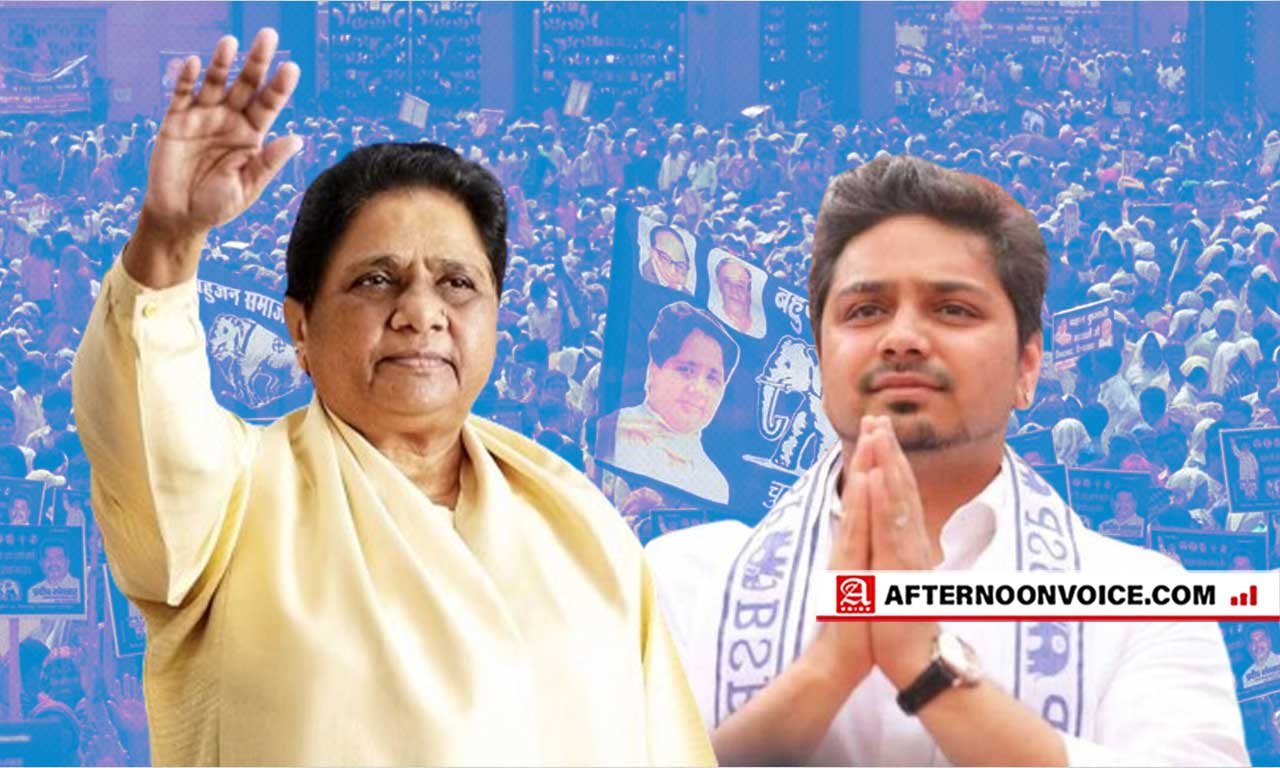
Mayawati and her Bahujan Samajwadi Party have already lost their sheen and relevance in Uttar Pradesh. She was called ‘Dalit-ki-Beti’ and later became a ‘Daulat-ki-Beti’, losing people’s confidence in her. The weakening relevance of Mayawati, which started with Dalits themselves, became too noticeable after the ill-conceived alliance with the SP in 2019. Otherwise, Mayawati’s fall commenced in 2012, when she failed to retain her government in Uttar Pradesh. She could win just 80 seats from the 206 she won in 2007. She lost 126 seats, a steep fall. Again, in the 2014 general election, she blanked out, whereas in 2009, she had won 20 seats. After these two consecutive losses, Mayawati understood that she had lost her grip in UP. In the 2017 assembly election again, the BSP won 17 seats and 19% of the votes. Though Mayawati is able to steadily keep her vote share, her share of seats has decreased year after year.
In 2019, she won 10 seats because of the Mahagathbandhan. Since she was not able to win the election and come to power, she became vulnerable. In four elections, she failed to show that Mayawati had broken the alliance with the Samajwadi Party soon after the election. Her inconsistency has harmed her reputation.
Mayawati came to politics at the mercy of Kanshi Ram. He was a government employee in Maharashtra who conceived the idea of creating a political movement for the backward communities. In the 1970s, he launched BAMCEF and then expanded the idea to a political group called DS-4 in 1981. Finally, DS-4 was graduated into the full-fledged political party BSP in 1984. Kanshi Ram’s key innovation was to spread the umbrella of his movement wider, to include all Hindu minorities and Muslims. What made the party tick further was his personal energy and organisational capacity. Kanshi Ram designed the DS-4 and later the BSP as a socio-political movement rather than a political party. A host of new books were written, revising Indian history from a Dalit point of view and highlighting Dalit heroes that the “upper caste” historians had ignored. The aim was to change the idea of Dalits in society so radically that rather than being the forgotten, lowest caste, they became a dominant fixture of India’s self-image.
In 1977, Mayawati was a schoolteacher living with her parents, preparing for the Indian Administrative Service. She had given a few political speeches and done some activist work. Kanshi Ram, himself an upcoming leader, saw potential in her and convinced her to follow him into politics full-time. By the late 1980s, she had become the uncontested second-in-command of the party. A clear division of labour had emerged, where Mayawati concentrated on Uttar Pradesh while Kanshi Ram concentrated on the rest of the country. And while she was rising within the party, the party was rising in the country.
After the Babri Masjid demolition in 1992, Uttar Pradesh was put under the president’s rule, and political violence had become widespread in the state. In the 1993 elections, UP votes were divided between the BJP, supported by the upper castes; Yadav’s SP, supported by the OBCs, especially Yadavs; and the BSP, supported by the SC/STs. Congress was a distant fourth. The SP/BSP formed an allied government with Mulayam Singh Yadav as the Chief Minister. For the most part, Kanshi Ram stayed away from UP politics, leaving Mayawati to handle the day-to-day affairs of the alliance, which quickly gave her the title of “Super Chief Minister.”
In 2002, she became Chief Minister for the third time, for sixteen months. The BSP’s agenda to make Dalit identity dominant also had to be pursued aggressively. Her swearing-in ceremony was followed by huge government handouts—job guarantees, loan waivers, land distribution, and reservations—to her base and massive shuffling of bureaucracy to promote Dalit officers. This was invariably followed by rampant corruption and further divisions within UP society.
When Kanshi Ram died in 2006, people speculated that Mayawati’s career would end here. But in the 2007 elections, the BSP won a clear majority in the state by achieving a strange coalition of Dalits, Muslims, and Brahmins, the latter two being stolen from the SP’s and BJP’s bases. For the first time, BSP was assured of a stable full-term. Her charm faded with time and now it is difficult to regain the lost glory. Uttar Pradesh politics are more complicated compared to other states.
Since the Independence Congress had dominance in the state till Rajiv Gandhi was alive, because of the unstated support of Brahmins, the forward-class Congress remained in power. Brahmins are the opinion-makers in Uttar Pradesh. Muslims, who make up 19.5%, want to assert themselves. They have been wavering in their support, from the SP to the BSP to Congress. Dalits used to be loyal to BSP but later on they too switched to Akhilesh. When Mayawati started promoting Brahmins, Dalits got irked.
Recently, the name of Akash Anand, who has been long anticipated to be Mayawaiti’s successor, figured second in the list of BSP’s star campaigners for the Himachal Pradesh assembly election. Akash Anand has also been entrusted with the task of gearing up the party cadre for the assembly election and restructuring the party organisation in Gujarat, Rajasthan, and Madhya Pradesh. Akash was made national coordinator of the BSP in 2019 when Mayawati changed the party organisation after breaking an alliance with the Samajwadi Party. The BSP had worked to emerge as the third alternative in Himachal Pradesh. Mayawati and national coordinator Akash Anand addressed a series of party rallies in Himachal Pradesh. It is interesting to see how Akash Anand is going to bring back the sheen to the party.

